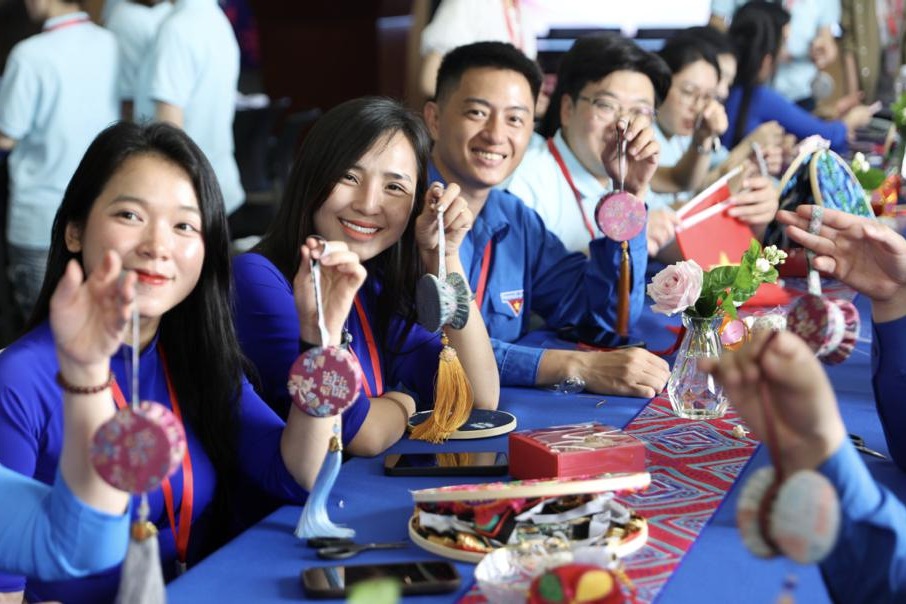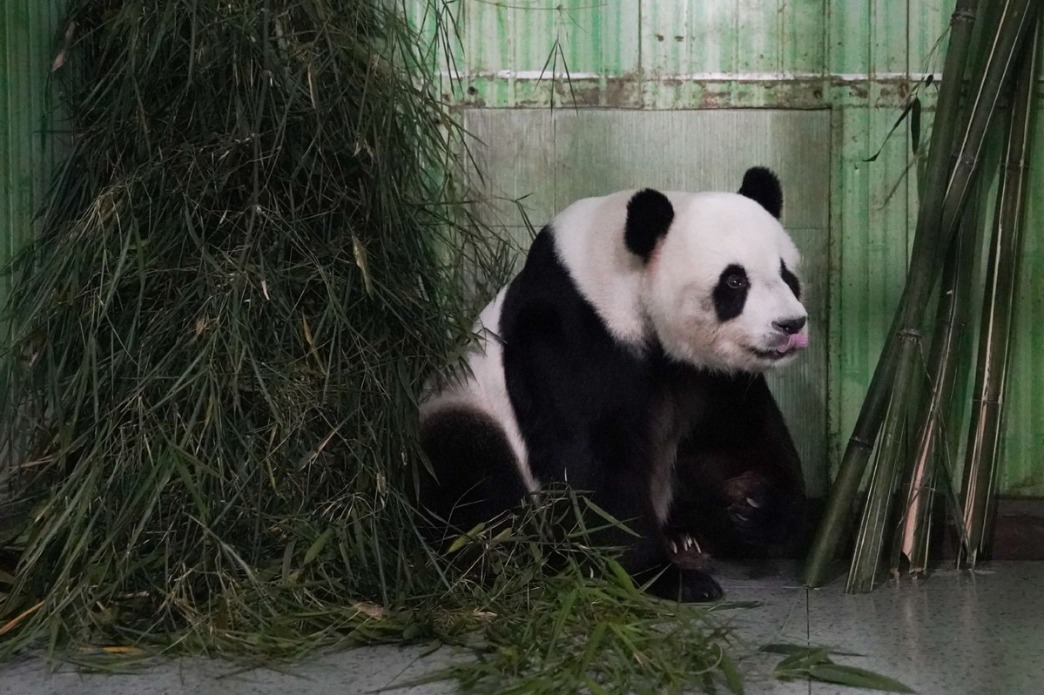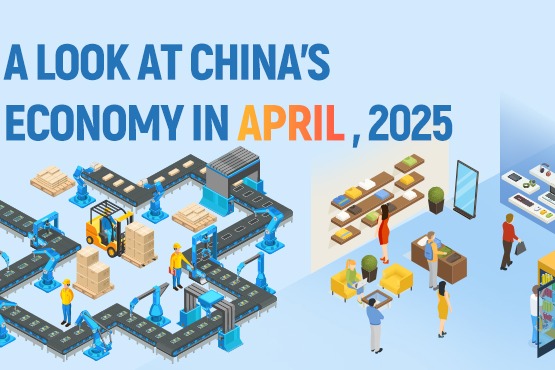Explainer: Six grave mistakes that mark Lai's first year in office as Taiwan leader

BEIJING -- Tuesday marked the first anniversary of Lai Ching-te's tenure as the leader of Taiwan.
The 65-year-old spent his first year in office taking actions that undermined cross-Strait peace and stability and harmed the island's overall well-being -- revealing his true colors as a stubborn separatist.
With Lai as the leader, Taiwan grapples with protracted social and economic challenges and the Taiwan Strait has been turned into a tinderbox of heightened tensions.
A recent poll released by Taiwan's United Daily News shows that among those surveyed, more than half expressed dissatisfaction with the performance of the island's leader and believed that Taiwan's society has become more divided.
Over the past few days, protesters took to the streets in large numbers in Taipei, Taichung and other cities on the island, voicing anger over what they see as poor governance and ineffective policymaking by Taiwan authorities.
What follows is a review of six grave mistakes Lai and his Democratic Progressive Party (DPP) made over the past year.
AGGRAVATED SEPARATIST NARRATIVES
Having openly rejected the 1992 Consensus, which affirms the one-China principle, Lai brought out a new version of the "two states" theory, asserting that the two sides of the Strait do not belong to each other, upon assuming the role of Taiwan region's leader on May 20, 2024.
During the past year in office, Lai has used various statements and actions to clearly express this view. In March, Lai went further to portray the mainland as a "hostile external force" and outline 17 strategies to counter so-called threats facing the island.
Earlier this month, Taiwan's executive body removed explicit recognition of the Han people -- the majority ethnic group in both Taiwan and the Chinese mainland -- from the island's official demographic profile. The move was part of a broader scheme aimed at severing the historical and cultural ties between the island and the mainland.
Lai's separatist rhetoric and actions have repeatedly provoked the mainland, prompting countermeasures and escalating tensions across the Strait.
SABOTAGING CROSS-STRAIT EXCHANGES
The DPP authorities led by Lai have maintained the ban on group travel to the mainland, restricted direct flights, and prohibited collaborations between Taiwan-based institutions and 10 mainland universities.
Lai proposed policies to investigate Taiwan residents holding mainland identity documents, expand the scope of scrutiny over Taiwan artists' remarks and behaviors, and establish a review system targeting cross-Strait exchanges in religion, culture and education.
In Taiwan, groups and individuals who support reunification and cross-Strait exchanges are facing harassment and business people are discouraged from investing in the mainland, while pro-DPP media have launched smear campaigns vilifying cross-Strait cooperation.
ENFORCING POLITICAL PERSECUTION
Taiwan's democracy and rule of law are in decline, as Lai's DPP has increasingly suppressed political opponents, silenced dissenting voices, and restricted freedom of expression.
Given that the DPP's campaign color is green, many in Taiwan have begun referring to its recent authoritarian tactics as "green authoritarianism."
The primary targets of this crackdown are those who oppose "Taiwan independence" and advocate for closer cross-Strait relations.
One high-profile case involved a woman from the mainland, known online as "Yaya," who married a man in Taiwan and publicly expressed support for China's reunification. Her residence permit was revoked by the DPP authorities, and she was forced to leave, separating her from her husband and three children. Similar measures were imposed on two other mainland spouses.
NEGLECTING THE PUBLIC'S BASIC NEEDS
Under the leadership of Lai, chronic issues in Taiwan, such as power shortage, water scarcity, wealth inequality, and imbalanced industrial development, are worsening, while supply shortages of daily necessities and frequent price surges have occurred periodically.
The DPP authorities' rash decision to phase out nuclear energy amid an ongoing energy crisis sparked public outrage, with critics accusing the DPP of "powering Taiwan with lies, not electricity."
Instead of addressing these problems, Lai has diverted significant resources toward political vendettas, including orchestrating recall campaigns against opposition lawmakers.
SELLING OUT TAIWAN
To obtain support for his separatist cause from the United States, Lai has willingly sacrificed Taiwan's interests.
Key industries like semiconductor heavyweight TSMC are pressured to relocate to the United States, risking industrial hollowing-out in Taiwan, while few measures were taken to counter the unfair tariff demands from the United States.
Local residents have bluntly condemned the DPP authorities for "emptying Taiwan's coffers to serve as an American ATM."
DISTORTING INTERNATIONAL LAW
Since taking office, Lai has openly challenged the international community's fundamental adherence to the one-China principle and the post-WWII international order by claiming that UN General Assembly Resolution 2758 "does not mention Taiwan" and the People's Republic of China "has no right to represent Taiwan."
He also continued his predecessors' practices by manipulating the issue of Taiwan's participation in the World Health Assembly (WHA) to advance his separatist agenda.
However, the proposal on Taiwan's participation as an observer was rejected by the WHA.
Over the past year, Lai and his followers have exploited the so-called "stopover" trips to collude with external forces and attempted to form ideologically-driven economic cliques that disrupt global trade order.
He sought to secure external forces' endorsement of his separatist agenda, fabricating the notion of so-called "international space" in the attempt to mislead the international community.
- Explainer: Six grave mistakes that mark Lai's first year in office as Taiwan leader
- Red sea star-inspired material heals itself rapidly underwater
- Xi sends congratulatory letter to 2025 SCO forum on poverty reduction, sustainable development
- Protests erupt in Taiwan as Lai approaches one year in office
- 3 missing in NW China coal mine accident
- China-US research unveils dinosaur-bird transition





































